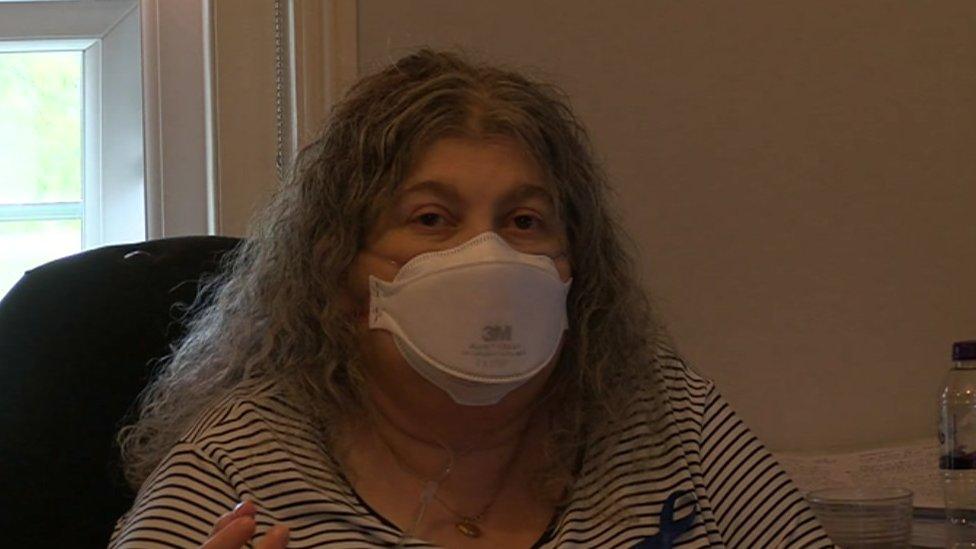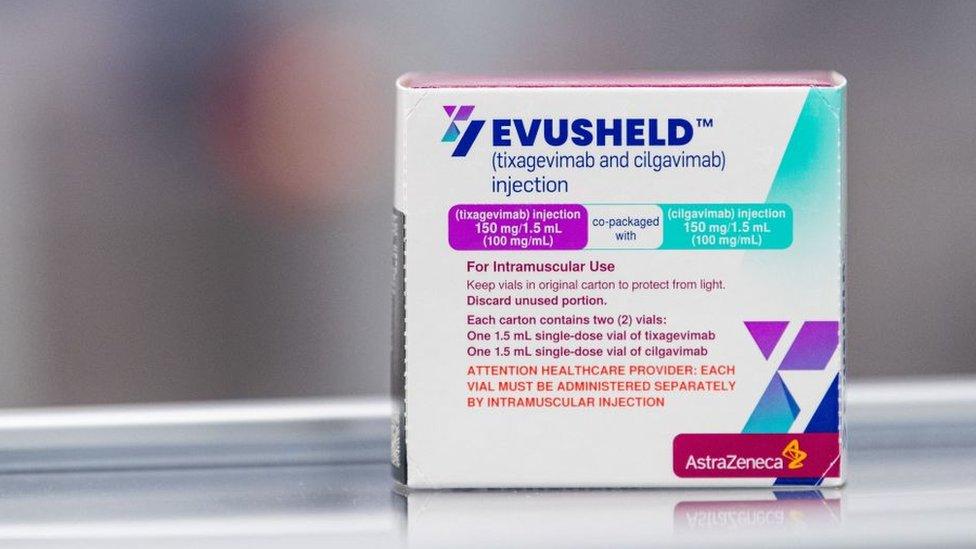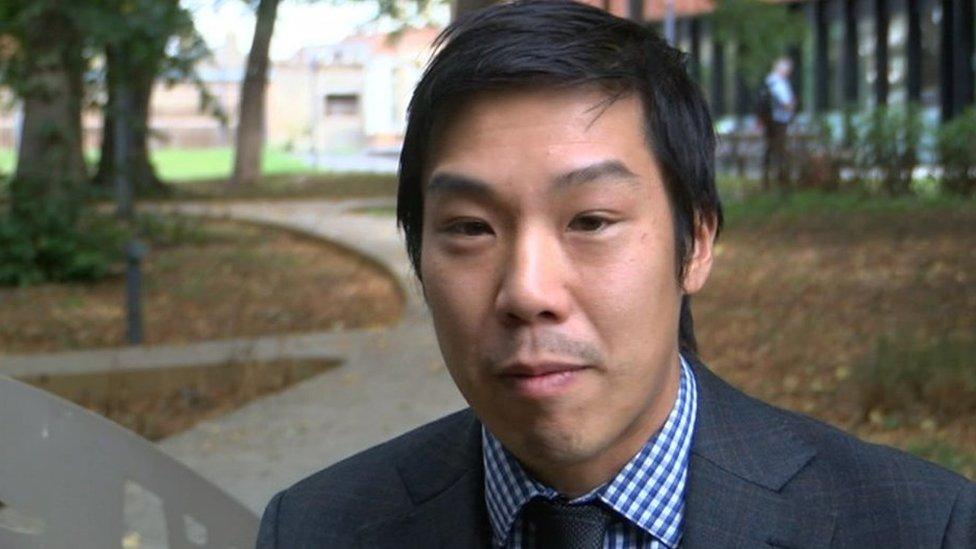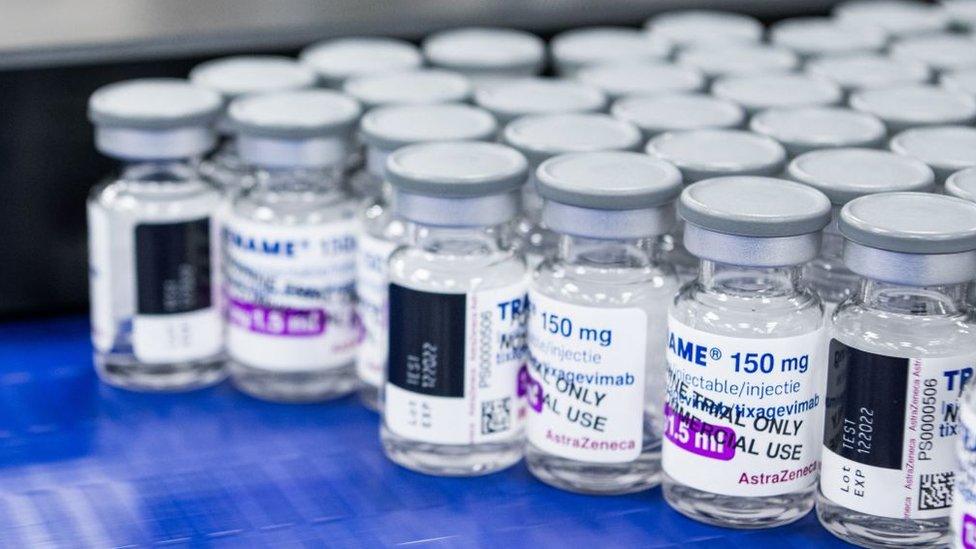Government's Evusheld decision 'disappointing' says widower
- Published

Juliet Coffer had a severe lung condition and had been shielding since the end of 2019
The husband of a vulnerable woman who called for the roll out of a Covid drug for people with weakened immune systems, said she would have been disappointed by the government's decision not to recommend it.
Juliet Coffer, from Hartley Wintney, had a severe lung condition and had been shielding since the end of 2019.
Before she died in August, she was living in one room and had to sleep at her desk.
She did not die with Covid.
Her husband Gary Alexander said: "If Juliet had access to Evusheld she would have definitely taken it - but it might not have been enough to convince her to go outside.
"But there are certainly other immunosuppressed people who would have benefited from that safety net and the thought that this could actually protect them."
Last month, the government confirmed its decision not to supply Evusheld in the UK.
The National Institute for Health and Care Excellence (NICE) said in a statement, external: "There is not enough evidence of its effectiveness against current variants and those likely to be circulating in the next six months."
The watchdog said it understood the decision would "be disappointing", adding : "We are developing a process to monitor real world data and re-evaluate the medicines as needed against the data in a faster way."

Research from the US and Israel suggests Evusheld reduces the risk of infection by about 50%
The drug was approved for use in March 2022, external but was reviewed after the Omicron variant emerged.
The drug's manufacturer AstraZeneca said there was "ample real-world data" that it worked. It is currently available in 32 countries.
Campaigners have been calling on the government to have a rethink.
Last year, Ms Coffer, who lived in Hampshire, told the BBC she believed the drug Evusheld could give her extra protection against coronavirus.
"I'm not protected from the vaccines because I can't make antibodies because I'm on immunosuppressant drugs," she explained.
She said having a drug like Evusheld was "very important to people like me because we'd get frontline protection".

Follow BBC South on Facebook, external, Twitter, external, or Instagram, external. Send your story ideas to south.newsonline@bbc.co.uk, external.
- Published21 September 2022

- Published22 August 2022

- Published12 August 2022
